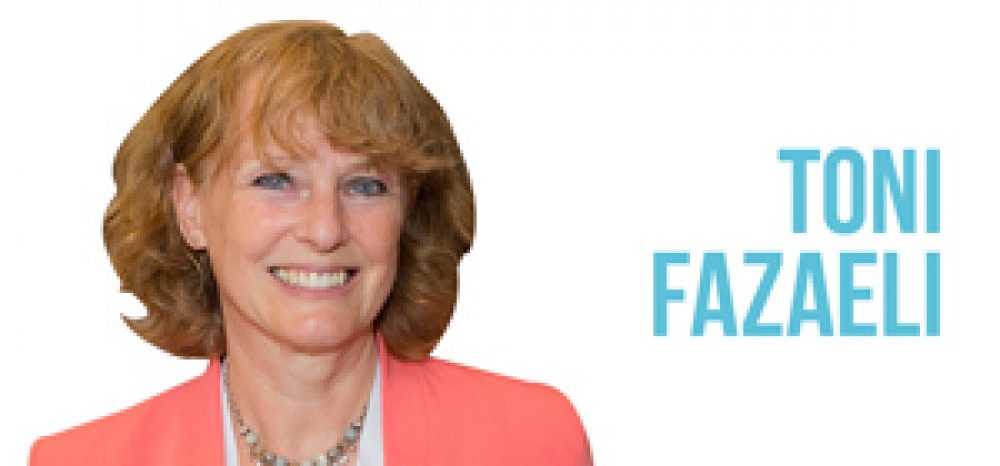Like many practitioners and leaders in the further education and skills sector, I am extremely concerned that proposals recently made to the government could erode the professional status of the teachers and trainers in further education and, over time, the quality of education delivered in FE.
Lord Lingfield’s interim report on professionalism recommends that initial teacher training (ITT) should be optional for new teachers and trainers entering the sector, who would need to gain only a preparatory award as part of an induction process in their first job. Being a qualified teacher would be optional.
Most teachers and trainers enter the sector from non-teaching backgrounds in commerce and industry, and are currently required to attain ITT qualifications and Qualified Teacher Learning and Skills (QTLS) status. The interim report recommends revoking the 2007 regulations that require this.
But a detailed report on research carried out for the Department for Business Innovation and Skills (BIS), ‘Evaluation of FE Teachers Qualifications (England) Regulations 2007’, presents evidence of considerable gains under the current system.
More than three million people receive education and training through the English FE system each year. Learners range from young people studying vocational courses, GCSEs or A levels, and adults receiving specialised training in the workplace, to some of the most vulnerable people in society, including those with learning difficulties, young and adult offenders, and those for whom education had previously been a closed book.
So, let me ask:
1. Do we, as a society, believe that the FE teachers serving this vast and diverse group deserve less professional training and support and a lower professional status?
2. Is it right for vulnerable young people and adults to be taught by unqualified teachers? And what will young people and parents think of this?
3. Should our engineers, accountants, technicians, mechanics, plumbers, chefs, healthcare and social workers of the future be taught by teachers who may know their subject or vocation well, but have not been through robust ITT processes to give them a thorough grounding in practice and theory?
Schoolteachers have to undertake ITT and afterwards gain Qualified Teacher Status (QTS). Persistent lobbying by the FE sector, most notably by the Institute for Learning (IfL), led to the government accepting Professor Wolf’s recommendation that the equivalent post-qualification professional status of QTLS should have parity with QTS for teaching in a school. This became law on April 1.
As the professional body, IfL is determined that our members should continue to benefit from this hard-fought parity of status being recognised.
So far, nearly 10,000 teachers in our sector have attained QTLS status through professional formation, conferred by IfL. Some already teach in school and FE settings, and the increasing trend for colleges to sponsor or form partnerships with schools and academies means there should be more opportunities for FE teachers to provide 14 to 19-year-olds with the high-quality vocational education that our economy clearly needs.
Lord Lingfield’s report points to the unregulated nature of teaching in higher education as a possible model for the future development of FE teaching. But academics in HE are teaching students who have achieved at least a level 3 qualification – a far cry from the diverse range of abilities that an FE teacher typically faces.
I strongly believe that it is in the public and national interest for FE teachers to have ITT, enshrined in law, rather than being left to the discretion of individual employers and the year-in, year-out changes inherent in annual national funding agreements with colleges and providers. School pupils are protected by law, as are people seeking medical help, financial services and legal help. So should FE students not be afforded the right – by law – to be taught by qualified teachers?
I cannot accept that, as a society, we are prepared to allow a situation where teaching and learning in FE requires no ITT beyond a standard induction for new entrants to teaching. To do so would send out the worst kind of message about the standing, status and quality of education offered in FE and do little for the professional prestige and career chances of the people tasked with delivering it.
Further education plays an indispensable role in improving the life chances and career opportunities of millions of people, to the benefit of the UK economy and our society. I think it deserves the highest professional standards, starting with mandatory ITT, and urge the government to resist calls for this to be sacrificed.
Toni Fazaeli, Chief Executive,
Institute for Learning








Why should FE teachers and their students expect less than schools and universities in the way of resources and quality?
I personally feel that anyone teaching in FE should have a full teaching qualification or be working towards one.
I alos beleive that no College would want to emply non qualified teaching staff so feel that this is down to the colleges, we do not require an outside orginisation such as the old defunkt and money wasting If£ to tell us professional teachers what we need.
As a CTLLS student I can see the argument from both sides, the individual who has been through the full range of qualifications to obtain QTS status will feel as if they have done this for nothing, if someone with subject knowledge can just walk into a teaching post.
On the other side reflecting back on my experience as a student in various educational establishments where I have had a whole range of experiences from Very bad to Very Good, it has shown that just because those individual tutors/teachers have been given a thorough grounding in practice and theory does not make them the ideal individual to teach at any level of the educational system.
As far as I can see, governments both local and central look at these issues with a ‘1 solution fits all’ mentality when as anyone who has taught or who has children one solution very rarely works across the board. The possibility of someone straight from industry with several years or even decades of commercial experience coming into the classroom and teaching students should not just be discounted though. The skills and knowledge that those people have is priceless when preparing someone for what could be a first job.
Each government that rolls in treats education at all levels as a laboratory, they tinker at the sides without consulting with the professionals already in the educational system then in the majority of cases without showing any thought for everyone involved from teachers to learners they undermine any good work carried out by the previous government again without consultation.
Levels of service across all levels in education should not differ, whether a learner is in higher education, further education or compulsory education the main principle of the learner is entitled to a quality education should follow, as things are now this does not happen in a lot of cases, especially in higher education.
Unfortunately, observations such as ‘levels of service across all levels in education should not differ’ (David Ashby, above) fuel the industrialisation of education – i.e. teachers’ craft skills are subordinated to ‘teaching competencies’ and the accompanying tick-box frenzy.
The consequence of this obsession with uniformity is a form of utilitarianism that encourages mediocrity, but which dresses it up by the use of glib cliché, such as the grotesque abuse of the word ‘brilliant’ by the Institute for Learning.
It is high time the pushy educationalist nomenklatura were sidelined (even if only for a few years), then a genuine dialogue, about the nature of FE and ACL teaching and learning, can begin between teachers, colleges and government.
Whatever the government ultimately decides to do, the I£L must have no part in the regulation or ‘professionalisation’ of the FE sector. The I£L is a pointless organisation which has damaged the FE sector for the last 10 years. I am one of the 10,000 members (or former members!) who was forced to achieve the QTLS status. I found it to be a worthless form filling exercise which contributed nothing to my professional development. Please listen to front-line teachers Toni, the I£L is a worthless organisation which offers nothing to teachers or learners. Stop wasting tax-payers’ money and wind up this worthless organisation!
The I£L is indeed a worthless organisation but if I was a Chief Executive on £120K plus expenses, I too would use all the spin and guile at my disposal to preserve my income.
Quite agree with you, Ian. But where is the £120K plus expenses to come from, once the govt stops paying whopping subsidies to IfL and ceases to insist that FE staff pay their blackmail? I suspect that whenever certain executive persons are not screaming out their devotion to the IfL, they are busy scanning Situations Vacant for fat sinecures in other organisations, God help the latter.
Of course Annie, you are dead right.
Situations vacant? How would you word on your CV that whilst sitting in your plush offices you drove thousands of members away from an organisation, even though it was compulsory that they remained in that organisation?
How do you hide on your CV that you caused all of them to flout government regulations?
Would you admit on your CV that you took money off those people (some of whom may have been earning one tenth of your income) and then demanded work too, whilst offering nothing of much worth in return? (For example, see Jonathan’s post below)
God help the latter indeed.
There’s a vacancy in our local chip shop!
My QTLS was awarded to me, even though I was no longer a member of the IfL, on the basis of copying and pasting work from my PGCE portfolio. following the advice of one of the IfL’s regional advisers. Hardly a rigourous professional formation process. Beyond lesson planning, my teacher training introduced me to various theories of education, none of which have been of much significant relevance to the job of actually getting a point across to someone who does not understand you. My experience of the IfL is that it has been an overblown, self-congratulatory job protection racket enshrined in statute. Fortunately no more. Sorry Mrs Fazaeli, but I see no worth in your organisation and I refuse to fund it.
Having worked with ‘Lecturers’ who have not obtained QTLS status I am amazed that anyone would detract from the painstaking work that IfL have done to professionalise the FE workforce. Parity with QTS is what the government fear……as they will have to pay FE lecturers the same as teachers with QTS. This is a government strategy to get cheap labour in FE. I, for one, will fight whole heartedly for the continuation of the 2007 standards and IfL as our professional body.
What a rediculous suggestion Sue. FE “teachers” will never get the parity of pay with those in an all graduate school based, profession where Masters level quals are quickly becoming the norm. What will happen is that QTS teachers will be forced to accept worsening terms and condtitions (comparable with the FE sector)when this government finally sell of all of our schools to become academies.
“What’s that teacher? You don’t want to work 45 hours a week for 48 weeks a year? Never mind, I’m sure many ‘lecturers’ will, bye bye”
Since 2000, I have worked as an independent management consultant across the private, voluntary and public sectors. And I occasionally undertake some part time lecturing in universities and colleges. I joined the IfL arond 2007/8, very reluctantly at a time when it was insisting that all lecturers in FE were required to do so, even if they only did very limited teaching etc. IfL seemed to position itself as almost a ` statutory body`. And I was amazed at IfL`s initially arrogant, dictatorial attitude and the generally submissive acceptance of this `compulsory` regime`. Communication had to be entirely by email and phone calls went unanswered etc. The main aim seemed to get the membership up and the money in.
Despite having a Masters in Learning and Development, and being a long standing Chartered Member of the CIPD, by qualification,an accredited Coach and Work Based Assessor with substantial senior management, personnel and training experience, I was dismayed to learn that all this counted for absolutely nothing in IfL`s inflexible structure. I remain only an Associate Member as I have hitherto refused to subject myself to what I see as a tedious, inflexible and inferior,qualification structure of `one size fits all` proportions which seemed highly tick box and process driven. The credit accumulation/ transfer and qualification portability inherent in the Universities system, along with the QCF etc, apparently had no place in IfL`s strategy.
Also,my earlier requests for information and advice from IfL re different routes and options have gone unanswered, so although I dutifully complete the annual IfL CPD, I have no inclination to progress things further.
I have also felt obliged to also encourage the many part time language tutors I have come across in the independent colleges sector ( commercial and not for profit) to also join IfL, despite that fact that for some,the fees, demands and process have been problematic, so as to maintain external accreditations for their organisations.
Therefore, personally I was pleased to see IfL having to step down from its self appointed perch of perceived power. when the challenge came from the public FE sector. And now the Institute may have to embrace further change.
But, to be fair, I have sensed a greater level of humility and interest in the membership as customers, over this last 18 months, as compared with the previous unapproachable attitude and lack of customer care. And the subscription fees are very reasonable compared with many professional bodies.
Also,I do find the newsletters and information briefings coming from IfL on different educational topics informative and interesting.
Plus I appreciate the consultative stance now being taken.
So keep up this new enlightened approach, IfL and I might seriously consider staying in membership when you become an entirely voluntary association, despite my earlier experience.
Thanks for the chance to express a view.
Beryl Little (Little by Little Associates)
I am a late entrant into the teaching ‘profession’ and after completing my DTLLS in 2010 am now just completing my literacy subject specialism with the aim of achieving QTLS status very soon after. The knowledge gained from the Additional Diploma in particular has allowed me to teach in a way that clearly benefits my learners and recent teaching observation comments confirm this to be the case. As a successful business woman in my former life I started as a graduate trainee and attended numerous courses over the years and learnt from more experienced colleagues what was required to be a Logistics professional. Why would anyone believe teaching, particularly Basic Skills can be taught by ‘anyone’. Many of our learners have disabilities,learning difficulties, mental health problems- professional training is a necessity and we ignore it at our peril.If this is a money saving exercise I sincerely hope Michael Gove, who I thought had a grip on educational needs, has a re-think. Do we know if he is aware of these proposals? Shouldn’t the IfL be approaching him direct rather than some ‘Lord’?
I’d like to express my wholehearted approval of IfL’s confirmation in their press release, on the 27th March 2012, that it will again operate as a voluntary organisation. Now it’s up to IfL’s ‘willing’ members to provide voluntary subscriptions in order to maintain those luxurious offices in London along with executive salaries of up to £130,000 – and they should be free to do so if that’s their choice.
As for schools and academies providing more opportunities for FE teachers with Qualified Teacher Learning and Skills (QTLS) to deliver vocational education, (presumably, in many cases, with little or no experience whatsoever of teaching 14 to 19-year-olds in a school environment), I can see this being fraught with controversy, confusion and uncertainty, not least its dependence on the survival of the IfL itself. And it must be remembered IfL is a Private, Limited Company which, after September 2012 will have all government funding withdrawn and thousands of membership fees to refund.
I am disappointed to see IfL still plugging away at the minority beneficial and widely criticised QTLS in light of evidence, not for the first time, of lack of rigour provided by Jonathan Russell (see comment above) and the Interim Report’s view that “QTLS/ATLS has not become a universal full licence to practise and a driver of teaching excellence.”….old habits die hard I suppose and this was, after all, one of their few ‘claims to fame’ in the ten years of existence.
This being said, I’m glad to see IfL believe ITT should remain mandatory – as should we all – and I would hope that all Teaching Unions and FE Providers join forces in order to stop government eroding not only professionalism but the quality of provision within the FE sector, ultimately leading to a demise in the Socio-Economic System through lack of adequate standards in teaching and training.
Picking up Jonathan’s point, “on the basis of copying and pasting work from my PGCE portfolio … Hardly a rigourous professional formation process”. I would hope that the evidence in the PGCE portfolio was rigorous and if so why would it cease to be rigorous when used for professional formation? The professional formation process might not be rigorous but I would hope that the evidence presented was.